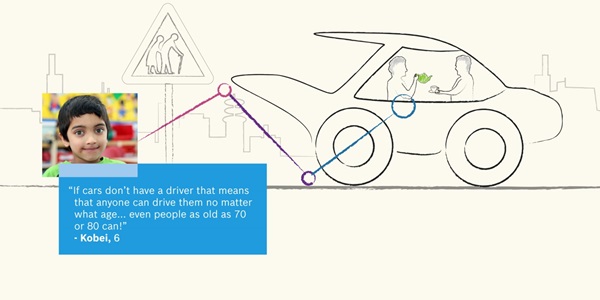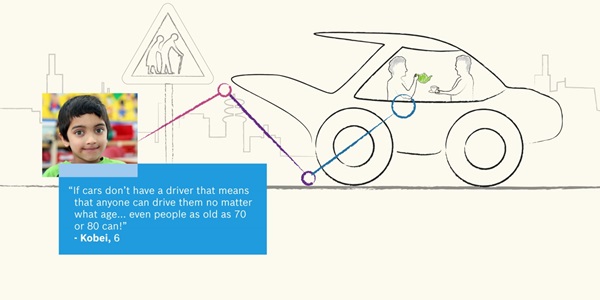Driverless cars could help more than 2.8 million Brits over the age of 65 remain mobile for longer. However, a new survey by Bosch has found that drivers over 55 could benefit the most from automated technology in decades to come, but feel less informed about driverless cars than any other age group.
The YouGov Omnibus survey of more than 2,000 respondents, commissioned by Bosch, showed that drivers over 55 years old are the most likely of any age group to say that they don’t know enough about driverless cars (27%).
The survey also found that drivers over the age of 55 are the most likely to say that driverless cars would not make them feel safer in any situation.
Key findings of the study are listed below:
• Fully automated cars could allow over 55s to stay independent in their later years
• Up to a quarter of pensioners struggle to access local amenities, according to Age UK
• More than a quarter (27%) of over 55s say they don’t know enough about driverless cars
A quarter (25%) of over 65s find it difficult to get to their local hospital, while 12% struggle to reach their nearest supermarket, according to figures from Age UK*.
Automated driving technology, or so-called driverless cars, give motorists greater support, making it safer and easier for people to stay mobile into later life, without relying on support from others.
However, of all age groups questioned, the over 55s stand to gain the most from driverless vehicle technology, according to Steffen Hoffmann, UK President of Bosch: “By the time baby boomers reach their 70s and 80s, we expect the driverless car to be quite common on UK roads, allowing this generation to stay mobile safely well into their old age. This allows them to keep their independence for longer. Therefore, it is important that they are aware of the technology at this early stage, so that they can take advantage of it when they need to.”
Despite many over 55s not liking the idea of driverless cars, many want their car to offer a number of driverless functions by 2025. Nearly three quarters (75%) want their future cars to maintain a safe distance from the car in front, while more than half want cars to take control to avoid an accident (61%) and park themselves (59%). All three of these features are already available on many vehicles today.

Future motorists ready for driverless cars
In contrast, Bosch’s survey found that the next generation of motorists already feel prepared for driverless cars. In a separate survey, Bosch questioned a group of six year olds about their ideal car of the future, who see driverless cars as a positive technology, if not essential.
One respondent, Kobei, said: “If cars don’t have a driver that means anyone can drive them, no matter what age. That means that even people as old as 70 or 80 can drive them!”
Daniel, who also participated in the survey, said: “We tell it [the car] where to go and then it copies a map where to go and then it drives there itself!”
Videos of the future motorists’ responses and more information on Bosch’s survey is shown below:

